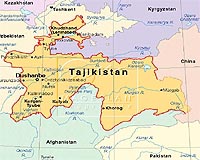| . |  |
. |
Red Bank, New Jersey (AFP) Oct 7, 2010 On an open field in this suburb of New York City, scores of men in military fatigues are put through their combat paces, hurling fake grenades and dodging imaginary bullets. A few short weeks earlier, they were still employed in their day jobs as police officers, students, firefighters and other civilian pursuits far removed from the field of battle. Virtually overnight, however, they have been transformed into the fighting men and women of the US Marines, mere weeks from deployment to one of the world's fiercest war zone, in the mountains of Afghanistan. The men, all reservists, are part of a group that has become of central importance to recent US war efforts, first in Iraq and now in Afghanistan. The day of drilling here in Red Bank, New Jersey, about an hour south of New York City, is to determine what kind of physical shape they're in as they prepare to go off to war. Before long the men, part of the fourth logistical Marine Reserves group, will brave gunfire and suicide bomb attacks driving armored trucks and tanks along the lawless Afghan roads. "It's difficult and dangerous," said Colonel Michael Melso. "These guys are without any doubt going to be on the frontlines of the war." There are some 100,000 marine reservists who take part in training at Red Bank and nearly 200 other marine centers dotted across the United States. These reservists, who will be mobilized for one year, will take up their training in earnest on November 1 in North Carolina. The Pentagon has reinforced their vehicles to protect them against the deadly roadside bombs that have caused most of the deaths and injuries to NATO soldiers in Afghanistan. Still, Corporal Julian Handler said he is still haunted by fear at the prospect of his impending mission there "I know that the enemy is smarter than he appears to be," said the 20-year old former clothes salesman, who quit his job when he was told to report for duty. He said he has been preparing himself, mentally and emotionally, for meeting the enemy. "I think about the IEDs (improvised explosive devices) every day. I spend a lot of time on Youtube, watching videos of IEDs attacks, I speak with Marines who were there," he said. Before the September 11 terror attacks, military reservists in the United States were known, somewhat derisively, "weekend warriors." In contrast to active duty soldiers who are deployed full-time, reservists were obligated to suit up in battle fatigues for just one weekend per month for training and drills. They also were required to take part in two continuous weeks of more extensive training each year. But the world has changed dramatically since the 2001 attacks. The mission of the reserve force is to augment the numbers of active troops at time of war or national emergency, and the Pentagon leans heavily on reservists to meet deployments of tens of thousands of soldiers in Iraq and Afghanistan. Not only have the reservists been dispatched to the field of battle for months at a time, but many have had repeat deployments, returning twice or even three times. "Nowadays, if you are a marine -- reserve or active duty -- you're going to deploy. You know that before you sign," said Daniel Solares, 23, one of the reserve marines at Red Bank. Strict federal laws guarantee that their jobs will still be waiting for reservists upon their return to civilian life, although that has been easier to safeguard in some professions than others. "For me, it's rather simple, because I'm NYPD. We have a lot of Marines, and a lot of reserve. They're used to it," Solares said. The New York police officer, whose family hails from Cuba, said he signed up with the marines in order "to give back to this country." He confessed that he knows next to nothing about the conflict-ridden land where he will likely spend the next several months. "Afghanistan? I don't know much about the country or the enemy. I know it's going to be more dangerous than Iraq," he said, adding that he was reassured that "we're going to have a lot of training," before deploying. That training entails four months spent whipping their bodies into shape so that they will be up to speed when deployed alongside active duty soldiers for seven months in Afghanistan. Like most marines, Oswaldo Espinoza, 25, also confessed ignorance about Afghanistan, but said he is ready to take up the fight there. "I know Al-Qaeda is working over there," the native of Ecuador said. "We know that because of our background, they are afraid of the Marines."
Share This Article With Planet Earth
Related Links News From Across The Stans
 34 Tajik troops killed in anti-Islamist operation: sources
34 Tajik troops killed in anti-Islamist operation: sourcesDushanbe (AFP) Oct 7, 2010 Thirty-four Tajik troops have been killed in two separate incidents during a military operation against Islamic insurgents in the east of the Central Asian state, military sources said Thursday. The heavy toll in a single day in what official statements insisted were accidents is a severe blow for the government as it seeks to quell mounting Islamist unrest in the remote Rasht Valley in the ... read more |
|
| The content herein, unless otherwise known to be public domain, are Copyright 1995-2010 - SpaceDaily. AFP and UPI Wire Stories are copyright Agence France-Presse and United Press International. ESA Portal Reports are copyright European Space Agency. All NASA sourced material is public domain. Additional copyrights may apply in whole or part to other bona fide parties. Advertising does not imply endorsement,agreement or approval of any opinions, statements or information provided by SpaceDaily on any Web page published or hosted by SpaceDaily. Privacy Statement |